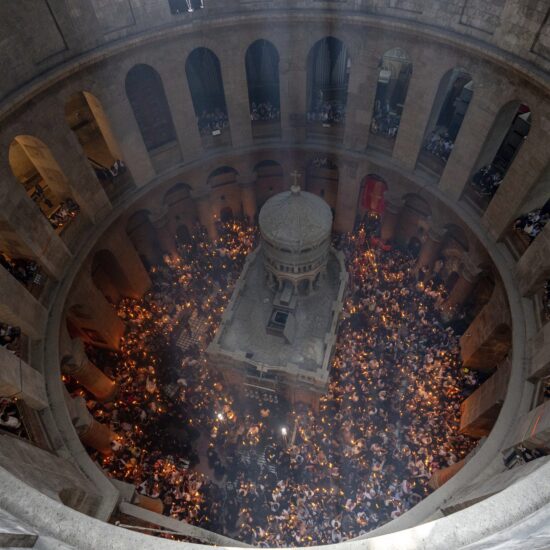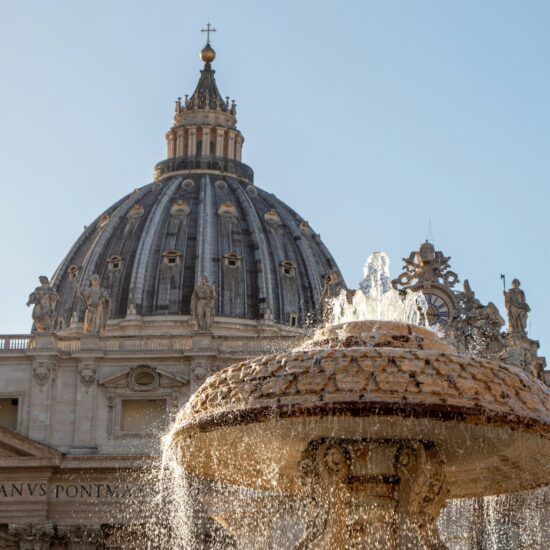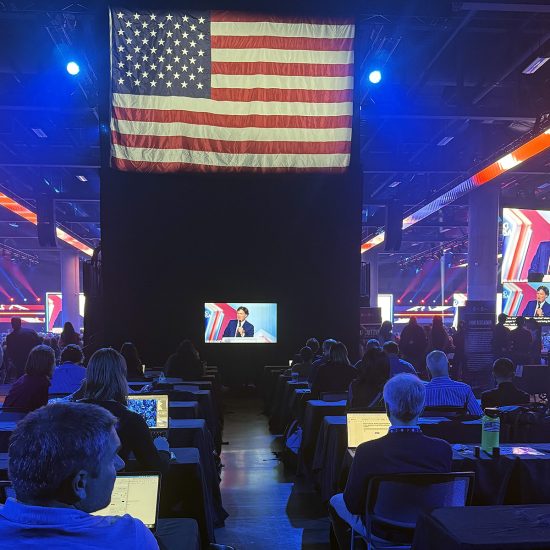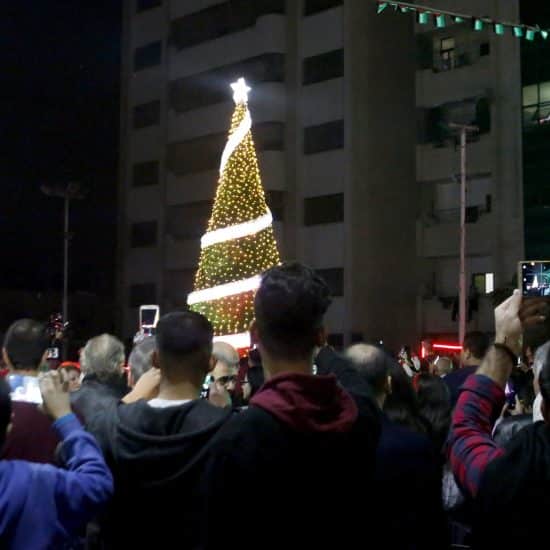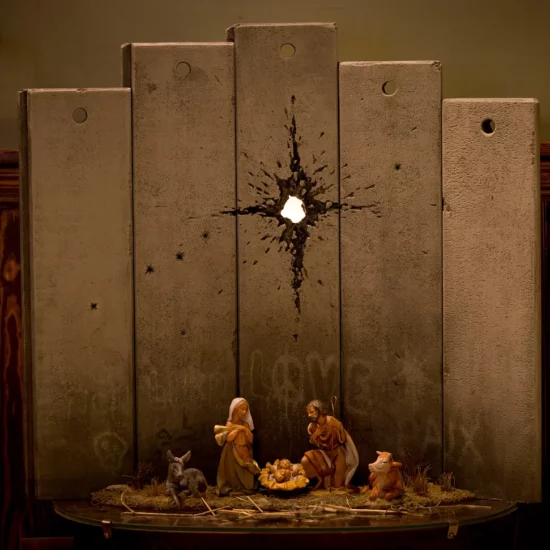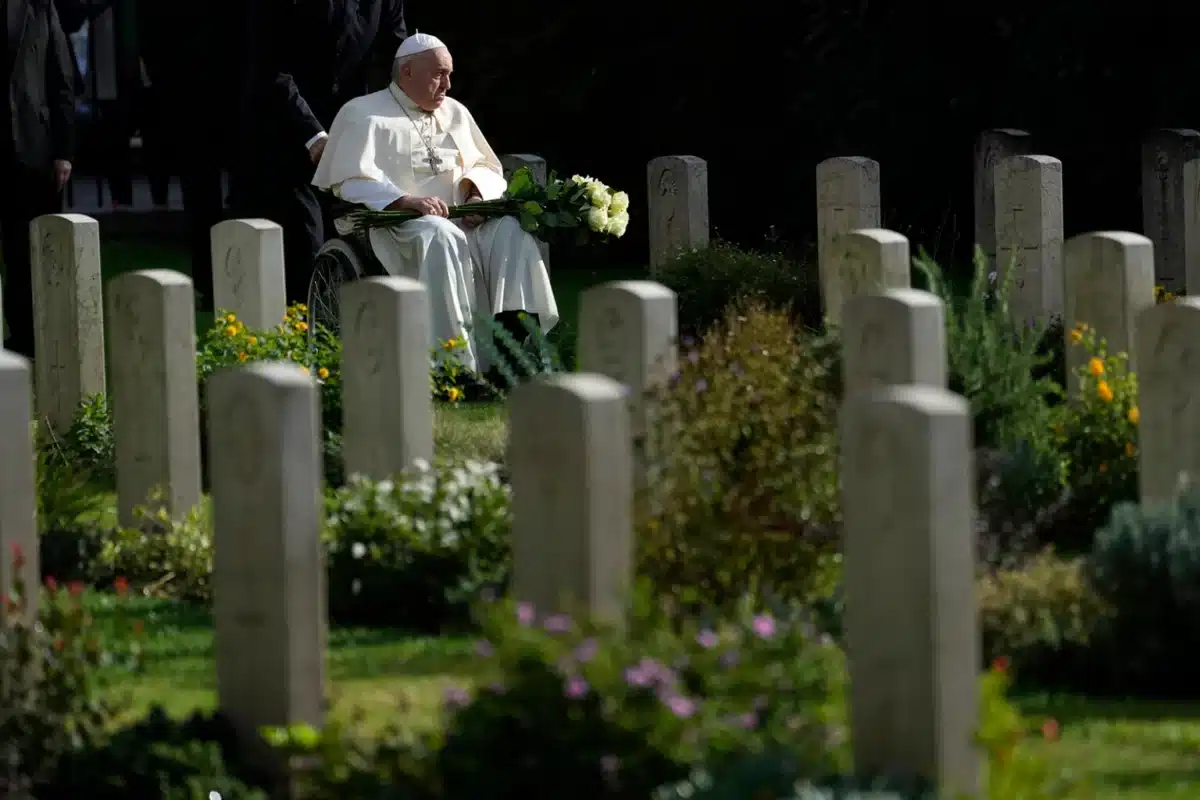
VATICAN CITY (RNS) — Already engaged with the conflict in Ukraine, Pope Francis and the Vatican have opened a new front in diplomacy efforts to address the violence in the Holy Land, with papal diplomats working to promote peace through official and unofficial channels.
Like religious leaders around the world, Francis has made official statements on the war that has followed Hamas’ Oct. 7 attack on Israel. “I encourage faithful to take only one side in this conflict, the side of peace,” Francis said during his weekly audience on Oct. 18.
Nine days later he called for a day of prayer and fasting for peace, repeating the appeal spoken by Pope Pius XII at the onset of the Second World War: “Nothing is lost in peace, all can be lost with war.”
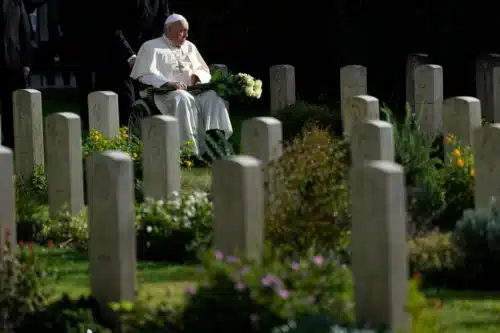
Pope Francis arrives to hold a Mass for the dead at Rome’s Commonwealth cemetery with the graves of 426 war dead from World War II, Nov. 2, 2023. The Mass comes on Italy’s Nov. 2 holiday to honor the dead. (AP Photo/Andrew Medichini)
Vatican officials joined international calls for renewed pursuit of a two-state solution as a long-term answer to the Israeli-Palestinian conflict, establishing a viable Palestinian state alongside security guarantees for Israel, which has been the Holy See’s position since 2013.
Francis reaffirmed the Vatican’s support for the strategy in phone calls with U.S. President Joe Biden and Turkish President Recep Tayyip Erdogan, while the apostolic nuncio to the United Nations, Archbishop Giordano Caccia, told the Security Council on Oct. 24, “while the path of dialogue appears narrow at present, it is the only viable option for a lasting end to the cycle of violence that has engulfed that land, so dear to Christians, Jews and Muslims.”
The Vatican’s secretary for relations with states, Archbishop Paul Gallagher, meanwhile has reached out to other leaders in the region, conveying to Iranian Foreign Minister Hossein Amir-Abdollahian in a phone conversation “the Holy See’s serious concern for what is unfolding in Israel and Palestine, underlining the absolute need to avoid enlarging the conflict and to realize the two-State solution for a stable and lasting peace in the Middle East,” according to a Vatican statement.
The Holy See, which recognized the state of Palestine in 2013 and signed the first comprehensive agreement with the Palestinian Authority in June 2015, also has diplomatic relations with Jordan and Egypt.
But the church’s real diplomatic work is being performed by organizations and leaders outside the Vatican walls. The lay movement of St. Egidio, a Rome-based Catholic organization focusing on peace promotion and poverty relief efforts, has become the arm of the pope’s invisible diplomacy.
When war broke out in Ukraine, Francis tapped Cardinal Matteo Zuppi, archbishop of Bologna, and cardinal-priest of St. Egidio, to be his personal peace envoy. It remains unclear whether the pope will appoint another envoy for the Mideast, but in the meantime Zuppi has weighed in on the hostilities in Gaza, underlining the need “for an authoritative Palestinian leadership that is capable of defending its people” in comments to journalists on Oct. 26.
If the pope sees the need for a dedicated representative for the Israel-Hamas war, “the front man who knows the context, the people and the literal roads best in the Holy Land is of course Patriarch (Pierbattista) Pizzaballa, the newly elevated cardinal,” said Victor Gaetan, author of “God’s Diplomats: Pope Francis, Vatican Diplomacy and America’s Armageddon.”
“I don’t know if there is anyone in Vatican diplomacy with higher knowledge and who is better respected in the region than Pizzaballa,” Gaetan added.
Francis also depends on a network of more anonymous Catholic clergy and laypeople on the ground who keep him informed about what is happening in Gaza. He has said he speaks with a parish priest and nuns who oversee The Holy Family Church in Gaza where 563 people, mostly Christians, sought refuge. “For the time, thank God, the Israeli forces respect that parish,” he said.
Francis is not above acting on his own as peacemaker. At the outset of the war in Ukraine, he raced to the Russian Embassy in a Vatican vehicle to demand the invasion be called off, and later intervened to free prisoners, including members of the Azov Brigade, by speaking directly with the Russian ambassador. The pope has repeatedly expressed his willingness to go to Russia but said that the Russian foreign minister, Sergey Lavrov, replied that a visit is “not necessary.”
For more than a century, the Vatican’s diplomatic stance has been never to take sides, even remaining officially neutral during World War II in what critics say was more about self-preservation than offering a channel for mediation. (Pope Francis himself has released voluminous records to clarify the role of the papacy during the war.)
But Zuppi, a close collaborator of the pontiff, said Francis’ position is not one of simple neutrality. Rather, he looks at the roots of violence and seeks “to avoid the polarization that often feeds the conflict.”
Francis has vigorously maintained this evenhanded posture in the face of severe criticism. When Russia invaded Ukraine last year, he refused to call out Russian President Vladimir Putin as the aggressor. After the attack by Hamas, the Israeli Embassy to the Holy See urged the Vatican to avoid “linguistic ambiguities” and clearly condemn the terrorists.
In both cases, the pope eventually agreed to lay blame but made his focus the victims of war, regardless of their origin.
Rather than condemn either side forcefully in recent conflicts, Francis relies on local churchmen in both conflicts who don’t mince words in calling out atrocities or their perpetrators. Major Archbishop Sviatoslav Shevchuk of Kyiv has been relentless in identifying war crimes committed by Russian forces in Ukraine and demanding a just peace in the region.
In the Holy Land, Pizzaballa has been firm in demanding the protection of human rights for innocent Palestinians living in the Gaza Strip. In a statement on Tuesday (Oct. 31), Pizzaballa castigated Israel for damaging 19 houses of worship in Gaza that were providing basic services and shelter for many.
“Such attacks on civilians, particularly children, and the deliberate destruction of civilian infrastructure, cannot be justified on rational or humanitarian grounds and are fundamentally at odds with even the most basic moral values,” the patriarch’s statement read.
Francis has long believed that a third world war has already started but is being “fought piecemeal” in several areas around the world. Speaking to the Italian news channel TG1 on Wednesday, the pope said the wars in Ukraine and Gaza simply represent this global conflict’s inching closer to the West.
“But there are many other wars that don’t touch us: Kivu, Yemen, the Rohingya in Myanmar, who are martyrs,” Francis said. “The world is at war, but behind it there is the arms industry,” he added, pointing the finger to a world driven by profit instead of peace.
Francis admitted to TG1 that, without paths for dialogue, “the war in the Holy Land scares me,” and talked about his concerns for an escalation of the conflict.
“The time is very dark,” he said. “We can’t seem to find the ability to think clearly, and I will add that it’s a further defeat. It’s been this way since the last world war, from 1945 until now, one defeat after the other because wars never stopped.”


